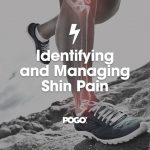Causes of Knee Pain – The Key Factors
There are several key contributing factors or causes of knee pain for people. Knee pain is a massive problem. It is not only a problem that affects the young, it also affects the elderly, it affects the middle age and every age category or decade of life in between.
Knee Pain Conditions
Knee pain conditions can include osteoarthritis of the knee and osteoarthritis of the kneecap. It can include acute sporting trauma, injuries such as ACL ruptures, medial ligament tears, and lateral ligament tears. Knee pain can also include conditions of growth in childhood or adolescence. This can include conditions such as Osgood-Schlatters, Sinding-Larsen Syndrome and also your tendon problems such as Jumpers Knee otherwise known as Patellar Tendinopathy or Tendonitis. So, knee conditions are wide and vary.
Causes of Knee Pain – The Key Factors
Interestingly the causes of any of these conditions have several key factors that irrespective of the pathology will be contributing to the development and the ongoing nature of any pain that any one of those knee conditions can produce. In practice, I regularly will draw a diagram, such as this, for my patients. The reason for such a diagram is that it examples that there is never just one sole single cause of knee pain or for that matter any condition or any injury. There is always more than one contributing factor.
Identifying The Key Contributing Knee Pain Factors
A good physiotherapist and a good physiotherapy process will be able to help you learn what are your key, or predominate contributing factors for your knee pain. Now, whatever the condition, remember there are common causes. Here is a few of them.
Genetics And Knee Pain – a Big Misconception
Genetics! I will start with this because it is a big misconception amongst a lot of people. Many people will say I have got bad knees, my father had them, my mother had them. That is a misnomer, no. Typically you don’t inherit knee injuries or knee pain from your Mum or Dad. The only component of genetics when it comes to knee pain can be the type of cartilage or to be more specific collagen that you inherit. That has to do with the degree of mobility that you will have in your joints.
However, it’s a small component based on the mobility of your joints and more specifically based on the type of cartilage or collagen that you have in the lining of your kneecap, knee joint and also putting everything together in your knee. So, that is genetics.
Tight Muscles – Often The Major Reason
The major reason though that people will experience ongoing knee pain is that of tight muscles. Now, whatever crosses the knee joint will make the knee tight. Muscles such as quadriceps, hamstrings, and calves all cross the knee joint. So, when these muscles get tight they act like a compressor on the knee. This increases the loading on the knee joint and load in excess will create and perpetuate pain. One of the other key contributing factors and causes of knee pain is weak muscles. So, we have had tight muscles, those muscles that cross and span the knee joint but we have also got weak muscles.
Weak Muscles Can Be Another Reason
Weak muscles will typically refer to the muscles sitting above the knee. These muscles include muscles of the hip, the glute max, the glute medius and the deep hip external rotators. The net effect of when these muscles aren’t working correctly is that the pelvis will drop and often internally rotate or what we term a Trendelenburg sign will be evident whereby the hip collapses and that puts more load on the knee joint.
Excessive Load Will Create & Perpetuate Knee Pain
Remember, an adverse or excessive load will create pain and perpetuate the pain that a patient may be feeling with their knee. Body weight is another key cause of knee pain. It is not one that people are often comfortable with however the stark reality of body weight is that every frame has an ideal weight and if you are one, two, three, four or five kilograms over your ideal body weight or frame weight, as I like to say in practice, then you are doing your knee a disservice.
Now, if you were to compound that and be overweight ten kilograms, fifteen kilograms sometimes even twenty or thirty kilograms your body weight will be contributing enormously to your knee pain. In fact, many Orthopaedic Surgeons for people with advanced wear and tear of their knee who are down the track looking at needing a knee replacement will actually be advised to go and lose weight, receive some physiotherapy, exercise with their pain and come back and see the Orthopaedic Surgeon often in five or ten years. That’s how important body weight is.
Knee Pain, Your Foot Type & Position
One of the other key factors or causes of knee pain is your foot type and position. Quite simply, there are three types of feet. One is the overpronating foot, two is the supinated or high arched foot and three is what we call a normal foot.
Now the foot type that tends to challenge or produce the most problems for knee pain, in terms of knee pain generation, is the overpronating foot or the excessively dropped arched foot. This foot creates a rotation or a torque around the shin which increases the loads that go on the back of the kneecap and through the knee at large.
Causes of Knee Pain – in Summary
So just to summarise there are several key contributing factors and causes of knee pain:
- genetics
- tight muscles
- weak muscles
- foot type and position
- your body weight
Activities And Knee Pain
Now the other key consideration is the activities that you do. If you are doing repetitive activities such as walking, running or playing a sport that you love, then these are great things however if you are doing those with tight muscles, weak muscles, a foot type that’s not ideal, genetics or you are overweight then you are putting your knee at risk.
Knee Pain Diagnosis and Recovery
So, in summary, there are multiple causes of knee pain. A good therapist will be able to help you identify what your key contributing factors are and help you, therefore, get recovered in the quickest most efficient manner possible.
I hope that helps. All the very best, and don’t forget if you don’t have time for good health, you want to have the health for a good time.

Brad Beer (APAM)
Physiotherapist, Author You CAN Run Pain Free!, Founder POGO Physio








